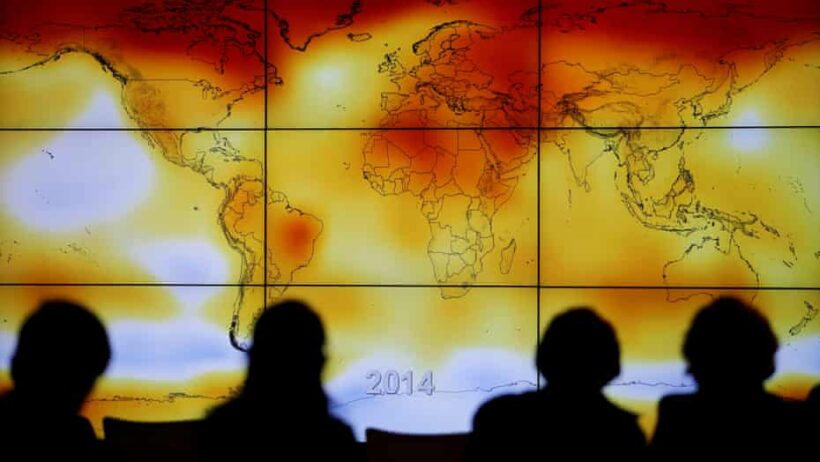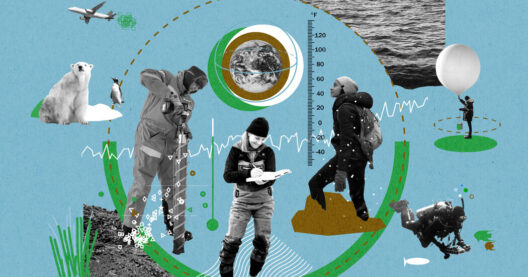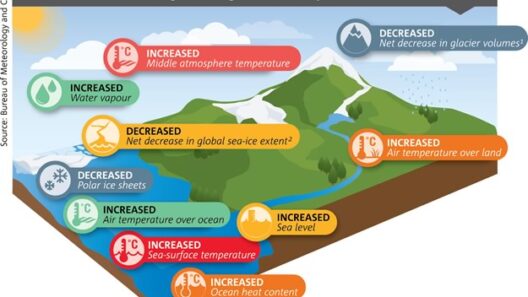Global warming, an unequivocal phenomenon characterized by the rising average temperatures of Earth, has elicited a plethora of discussions surrounding its implications. While significant focus is often placed on the detrimental effects of climate change, analyzing whether global warming can yield beneficial outcomes presents a nuanced perspective. Thus, this discourse seeks to decode the multifaceted science of a warming planet, uncovering potential positives amidst the overarching negatives associated with elevated temperatures.
The First aspect to consider is the geographical variability of warming impacts. In some arctic regions, for instance, the thawing of ice has opened new shipping routes, reducing travel time and fuel consumption. As the Northwest Passage becomes navigable, opportunities for economic development surge, particularly in previously isolated areas. This newfound accessibility could herald advancements in local economies, enabling a reimagined future for indigenous communities.
Equally important is the potential for agricultural expansion. Climate change is expected to alter precipitation patterns and temperature zones, leading to new agricultural frontiers, especially in higher latitude regions such as Canada and Scandinavia. In these areas, longer growing seasons may offer the possibility for diversified crop production. With the right adaptations, farmers could transform their agricultural practices, capitalizing on the changing climate to increase food production where it was previously limited.
However, it is imperative to note that embracing potential benefits does not imply an endorsement of global warming. Rather, these prospects should be viewed through a critical lens, accounting for sustainability and long-term viability. Unbridled agricultural expansion, if not managed wisely, risks depleting natural resources and disrupting existing ecosystems. This leads to a central question: how can humanity harness potential benefits while concurrently mitigating adverse outcomes?
A comprehensive understanding of global warming also compels examination of its effects on biodiversity. Warmer temperatures may endanger certain species but can also create niches for other flora and fauna to flourish. Some migratory species may thrive as they adapt to shifting environmental conditions. Enhanced biodiversity can bolster ecosystem resilience, allowing natural systems to withstand stresses, thereby maintaining ecological equilibrium.
Moreover, on a societal scale, climate change can accelerate technological innovation. The growing urgency to combat climate change fosters investment in renewable energy technologies, battery storage advancements, and energy efficiency measures. This transition towards a low-carbon economy is not only an essential component of mitigation efforts but also a catalyst for job creation and economic revitalization. The evolving landscape necessitates innovative thinking that can lead to consequent breakthroughs across sectors.
Nonetheless, the disparity between the wealthy and less affluent is amplified through these changes. Regions that are less developed often lack the resources to adapt to the consequences of global warming effectively. The question remains: who stands to benefit from this warming? An equitable approach to climate action is crucial; where adaptation strategies are implemented, they must be inclusive, ensuring that marginalized communities are not left behind.
Further complexity arises from the sociopolitical fabric woven through discussions of global warming. For instance, some policymakers view industrial expansion as an opportunity within a warming climate, favoring economic growth over environmental protection. Such viewpoints often collide with the immediate imperatives of reducing greenhouse gas emissions. The challenge lies in reconciling economic interests with environmental stewardship. Balancing short-term gains against long-term sustainability mandates a substantial shift in policy approaches.
Another layer of this intricate discussion involves the implications for health. On one side, elevated temperatures can exacerbate heat-related illnesses and respiratory problems linked to poor air quality. Conversely, certain climate-friendly initiatives—such as investing in public transportation and urban green spaces—can improve public health outcomes and reduce healthcare burdens. In this light, global warming might spur cities towards healthier infrastructure and greener urban living, which promise a more sustainable urban future.
Furthermore, water resource management emerges as a vital aspect of this discourse. The shifting climate precipitates changes in water availability, with some regions experiencing scarcity while others may face excess. The potential for creating innovative water conservation techniques and equitable distribution systems could shift paradigms around resource management. Strategic investments in infrastructure to capture and reuse water could be beneficial, enabling societies to thrive even in altered hydrological circumstances.
Delving deeper, the psychological and cultural dimensions of climate change should not be overlooked. Regions experiencing positive aspects of global warming might cultivate a sense of resilience and encourage cultural adaptations. Communities may develop strong bonds as they collaboratively address challenges, thus fostering a collective ethos aimed at protection and sustainability. Such cultural shifts could evolve into long-term community-engaged solutions that prioritize collective responses to environmental challenges.
Moreover, the interconnected nature of global ecosystems means that localized warming effects can have far-reaching consequences. The transboundary impact of climate change necessitates international cooperation. The collaborative ventures sparked by the awareness of global warming may very well lead to stronger diplomatic relations, driving countries to unite under a shared cause—a shared fate. Ultimately, solidarity could yield significant positive shipping agreements and climate accords that prioritize environmental stability.
In conclusion, while the narrative of global warming often highlights adverse impacts, it is essential to decode the complexity layered within this phenomenon. From socioeconomic dynamics to technological innovation, potential benefits can stem from a warming planet, albeit intertwined with significant responsibilities. A forward-thinking approach involves recognition of the potential positives, underscored by the collective commitment to sustainability, equity, and resilience. Only through meticulous examination and inclusive strategies can humanity navigate the twin realities of a warming world and forge a pathway towards a more harmonious existence with nature.






